Think of the potential for growth you would have if with every contact that comes your way, you knew exactly what information to provide to help convert them to an actual customer, based on a whole range of data collected. Lead management through CRM does exactly that, turning a user into a customer through automated but personalized actions.
Let's look in more detail at how to do it.
What is a Lead?
A lead is an individual or organization that has expressed interest in what your company offers. This interest can manifest itself through a variety of actions, such as filling out a form on your website, signing up for a newsletter, attending a webinar, or interacting on social media. The quality of a lead depends on the level of interest and purchase intent of the potential customer.
The Life Cycle of the Lead
The life cycle of a lead includes several stages, each of which requires specific strategies:
- Lead Generation: The initial stage in which potential customers are attracted through marketing activities, such as creating valuable content, search engine optimization (SEO), and the use of social media. Content can be articles, PDFs, webinars, videos and other user-friendly elements that drive the generation of interested leads.
-
Lead Nurturing: Once acquired, leads need to be nurtured through targeted communications, such as sending specific newsletters or personalized offers, to keep them engaged and interested. Many leads are lost in this step because the right inbound marketing techniques are not adopted, thus losing their attention.
-
Lead Scoring: Scoring leads based on their behavior and interaction with business content. This helps identify and rank the most promising leads, known as Marketing Qualified Leads (MQL) or Sales Qualified Leads (SQL), within an accurate database.
-
Conversion: This is the final process in which the qualified lead becomes an actual customer, completing the purchase or subscribing to the service offered.

Lead Management with HubSpot CRM
HubSpot is a powerful platform that supports every stage of the lead lifecycle, offering tools for marketing automation, sales management, and customer service. It is an all-in-one CRM that enables management of the entire customer lifecycle and different aspects of a company's marketing. It is cloud-based and offers specialized tools to marketing, sales and management teams.
Building on this foundation, let's see how it can help acquire and manage leads.
Lead Generation
HubSpot allows you to create professional landing pages and custom forms to collect lead information. It allows you to create specific forms and CTAs and place them within landing pages, pop-ups on the site, or emails. All of these options are customizable and extremely easy to use. Selecting the right data to request is essential to bring about a lead's conversion rather than its abandonment. Too many mandatory questions, in fact, often put users off, in a value imbalance between their data and what they get from giving it.
The platform integrates SEO tools to enable you to optimize website visibility and attract qualified traffic. It suggests changes and makes clear the necessary actions to be taken to improve SEO. In this way, it guides even those who are not experts in the field toward improvement actions.
Lead Nurturing
Through email marketing, HubSpot enables personalized and automated communications, keeping leads engaged and informed. Automated workflows can be configured to send specific content based on lead actions.
For example, you can segment users based on the pages they visit, the products they view and the products they put in their shopping cart, or based on the landing page they sign up from or the contact information they leave behind.
All this information is useful for creating ad hoc communications, such as SMS or text-specific e-mails containing the user's name and a dedicated offer, or discount. The options are many and all highly customizable with CRM tools.
Lead Scoring
The platform offers lead scoring capabilities that score leads based on their behavior and interaction with company content. This helps identify the most promising leads and target sales team resources more effectively.
Scores can be assigned based on factors such as:
- Demographic data (e.g., business sector, job role, company size)
- Online behavior (e.g., number of site visits, pages viewed, resource downloads)
- Email and campaign interactions (e.g., email opening, link clicks)
- Engagement on social media (e.g., likes, comments, re-shares)
- Specific actions in the sales funnel (e.g., requesting a demo, filling out a form)
HubSpot allows you to independently define the positive criteria for which points are added to a lead (such as having visited a page or opened more than two emails) and the negative criteria for which points are subtracted (such as not having interacted with the site in the last ninety days or having an email from the generic domain). Everything is custumizable so as to give value to the users who can carry the most weight for the company.
Sales pipeline
HubSpot enables the creation and management of customized sales pipelines, monitoring the status of each lead and facilitating collaboration between marketing and sales teams down to customer service. Tasks can be automatically assigned to team members, ensuring an efficient workflow.

Advantages of HubSpot in Lead Management
This CRM offers several advantages due to its features. These include, for example, the fact that it is cloud-based and thus shares information in real time and among all departments involved. Let's look at the main advantages below:
-
Centralization of Information: All interactions with leads are recorded in one place, facilitating access to information and improving communication between teams.
-
Marketing Automation: Repetitive tasks can be automated, saving time and reducing manual errors.
-
Analytics and Reporting: HubSpot offers advanced analytics tools to monitor the performance of marketing and sales campaigns, allowing strategies to be optimized in real time through custom-created reports.
-
Multichannel Integration: The platform supports integration with different communication channels, such as email, social media and chat, allowing you to reach leads through their preferred channels.
-
Scalability: HubSpot is suitable for both small businesses and large enterprises, offering scalable solutions that grow with your business.
Managing lead generation with the right tools
Effective lead management is essential for turning prospects into actual customers. Using HubSpot's CRM, companies can optimize each stage of the lead lifecycle, from generation to conversion, improving operational efficiency and increasing sales opportunities.
To take this step, it is very useful to rely on those who know the software well and can set it up right from the start correctly on your company's needs. Ekeria is a leader in HubSpot Milan implementation. Contact us now and request a free CRM demo!
.webp)


